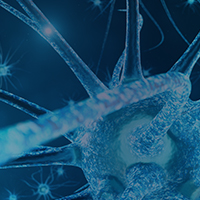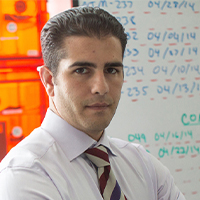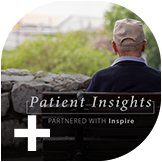
Life after cancer: Navigating survivorship and mental health
When we think of cancer, we think of a fight: a battle between a patient and a mutation to their biology, a transformation – a hijacking – on the cellular level. Indeed, cancer doesn’t just take over a person’s physical body, but their very life.
The word “cancer” brings to mind diagnosis – and the mental impact of that on the person, who becomes “patient” thereafter, and their families – as well as the treatment possibilities, and the recovery, the regathering of strength post those therapies, and – sometimes, hopefully, when effective – pulling through and making it to “the other side”, so to speak: the cancer in remission.
In short, when it comes to journeying through cancer care, there seems to have been prolific, yet strangely finite, consideration of that path, ceasing when it comes to post-treatment. Screening and diagnosis to treatment and remission have been covered, but what about what happens after that? What about cancer survivorship? The good news is that a shift in the state of affairs is occurring.

In the aftermath of cancer: Fear of the unknown
June was National Cancer Survivors’ month. As the National Cancer Institute (NCI) defines it, cancer survivorship as a term applies to those who have faced cancer, undergone treatment, and survived – but, importantly also, continued onwards “through the balance of [their] life”.
This notion of balance is key. To survive cancer is not necessarily to be free of the disease; life, indeed, can very much be lived with cancer. After all, the essential nature of “survival” is to continue to live or exist in spite of an accident, ordeal, or challenging circumstances. It is under such stresses, though, that we change. Therefore, it stands to reason that post-treatment care for cancer patients should evolve to parellel these changes.
After cancer treatment has “completed”, real-life adjustments can be considerable, taking a toll not only on the body, but on a patient’s mental health. A study published in Medical Clinics of North America as far back as 2017 noted the negative mental health aspects of survivorship: that there was fear and hypervigilance to physical sensations – known as “fear of recurrence” (FOR) – and that cancer survivors “have numerous sources of distress that increase their potential for adjustment reactions”. That “distress” becomes an umbrella term for myriad and divergent symptoms, ranging, according to the National Comprehensive Cancer Network (NCCN), “from common feelings of vulnerability, sadness, and fears of recurrence to disabling depression, anxiety, trauma, panic, and existential crisis.” That’s a pretty broad remit, and certainly not insignificant when it comes to consideration of cancer survivorship care.
The same study suggested screening, not only for cancer recurrence, but for mental health needs. The NCCN itself has guidelines for screening distress to assist healthcare professionals with this, a commonly recommended measure being the Distress Thermometer (DT), a simple oral or printed measure that asks the patient to rate their distress from 0 = no distress to 10 = extreme distress. If a patient scores four or higher, further screening may be needed.

The burgeoning field of cancer survivorship research
Cancer survivorship research, such as that conducted at Imperial College London, focuses on the health and wellbeing of people who are living with, through, and beyond a cancer diagnosis, recognising at the same time the impact of cancer on family members, friends, and caregivers.
This field of research has sprung up because – happily – cancer survival in the UK has doubled over the last 40 years. It is estimated that some four million people will be living with or after cancer by 2030. However, it is a double-edged sword: a greater number of cancer survivors means a greater number of people living with the after-effects of the disease and its treatment. It is for this reason that supporting people to live with and beyond cancer is a major focus of the NHS Long Term Plan for Cancer. Indeed, the National Cancer Research Initiative has recently published Cancer Research Priorities for Living With and Beyond Cancer.
Fear of recurrence (FOR) is palpable, a beastly nightmare that poses a threat in waking and in sleep, seeping through the fabric of the family unit – exacerbated by the fact that late effects might not exhibit for months or years following the last treatment. These effects can include cardiovascular and pulmonary issues, bone loss, changes to sight and hearing, lymphoedema, and additional problems.
The same Medical Clinics of North America study mentioned above also noted the extensive Childhood Cancer Survivor Study (CCSS), which tracked over 20,000 survivors across the US. While most survivors did not meet the criteria for a diagnosis of post-traumatic stress disorder (PTSD), many survivors did report post-traumatic stress symptoms. Certainly, adult and young adult (AYA) survivors (normally, 15 to 39 years of age) are increasingly recognised as a group with emotional needs that differ from either childhood cancer survivors or older adults, and FOR is common in this bracket.
What is important to note is that physical symptoms can be associated with depressive symptoms. In other words, FOR and its ilk can become a case of “directed energy”: think it, and it shall happen. One example in the Medical Clinics of North America study was oral cancer survivors, who reported dental health, problems with smelling, and issues with range of motion – all associated with both depressive and anxiety symptoms. In terms of treatment for cancer survivors, however, when it comes to mental health conditions, which the study notes "can linger for up to 10 years after treatment” – cognitive behavioural therapy (CBT) has been shown to be effective in reducing mood symptoms, while mindfulness-based approaches have demonstrated efficacy in reducing anxiety and depressive symptoms.
Furthermore, according to a Phase 3 study led by researchers at the University of Pittsburgh School of Medicine, and supported by the National Cancer Institute, run at the UPMC Hillman Cancer Center in Pittsburgh and published in The Lancet, cancer patients who receive specialised mental health support as part of their treatment plan are more likely to see improvement in quality of life and pain reduction, as well as fatigue and depression.
Importantly, the study showed that, even if the collaborative care intervention was offered to patients for free, hospitals could expect to save some $4 million or more for every 250 patients. Mental health treatment for cancer survivors, it suggested, results in fewer emergency room visits, fewer readmissions to hospital within 90 days, and a shortening of the length of hospital stays themselves – all benefits that reduce costs to healthcare systems.

Shaping the future of cancer survivorship care and support
The National Cancer Survivorship Resource Center (The Survivorship Center) is a collaboration between the American Cancer Society and the George Washington University Cancer Institute. Funded by a five-year cooperative agreement from the Centers for Disease Control and Prevention (CDC), its goals are to shape the future of cancer survivorship care and improve the quality of life of cancer survivors as they transition from treatment to recovery.
Merck & Co (known as MSD outside of the US and Canada) is a pharma company striving to provide similar support. The World Cancer Day motto, “Alone we are strong. Together we can be unstoppable.”, urges the necessity of collaboration, and 2024 has been an important year for the Close The Care Gap campaign, which advocates equitable access to cancer treatment. Notably, Merck has collaborated with the American Cancer Society’s Building Expertise, Advocacy, and Capacity for Oncology Navigation (BEACON) initiative for several years, also, supporting global health institutions in low- and middle-income countries (LMICs) by fostering the creation and integration of cancer patient navigation programmes to address disparities in cancer care. Additionally, by harnessing AI, ML, and other technologies, the company insists personalised cancer care can be supported in ways that were not possible before; for example, digital healthcare platforms, which can enhance patient education and help support adherence, while cultivating community support, including such CBT programmes as mentioned above.

A case study – Breast cancer and the enlightened patient experience
Let’s turn, though, to a real-life example of cancer survivorship: Bethan Brookes, a journalist who wrote a personal blog about her cancer, and who permitted reference to her journey in this feature, is now in remission. However, her life was turned upside down on the 13th January 2021, when she was diagnosed with advanced HER2-positive Stage 3 breast cancer. Three weeks later, she had had a mastectomy (“Show up. Breathe. Trust”, the name of the blog, was Brookes’ mantra on the morning of her mastectomy); all of the lymph nodes on her left-hand side were also removed (15 out of 20 had shown signs of cancer). This was followed over subsequent months by gruelling chemotherapy rounds, radiotherapy, and drug therapy.
The blog, in fact, became Brookes’ own form of therapy, her mental health journey through cancer survivorship – and an online location to which other cancer survivors could come, read and relate, share their stories, and build a community of care.
To follow Brookes’ journey through her blog is to accompany her through “spiralling fears” following a mere “four-minute call (rather than a face-to-face appointment)” due to the COVID-19 pandemic, to understand that “nothing can prepare you for the diagnosis”, but that there is a calming effect within simple, clearly defined instructions for patients undergoing surgery and post-operative care. Of course, an operation is just “a launch pad” for the “odyssey” that cancer is. The diagnosis changes everything and “fear loomed large in the shadows”.
After an all-clear post-mastectomy, there was a separation that Brookes felt from normalcy, feeling that she had “finally stepped over the threshold into a different space. The club that no-one wants to be part of. The cancer club. And through the cancer club lens, the world looks different.” Indeed, that club contains “a seemingly endless continuum of tests and scans, nail-biting waits for results, and follow-up appointments.” What saw her through the early days, though, was the allocation of a MacMillan breast cancer nurse.
Such support is deeply required by patients who have no clear inkling of the parameters of time left them post-treatment, as much as during: Will it be five years? Five months? The psychological impact is intense. The expression “every moment counts” is a pressing one for the survivorship group, and for their nearest and dearest. In Brookes’ case, she shares that there came a point where, with hesitancy, her 16-year-old son asked whether he could see his mother’s mastectomy, asked with “courage and emotional maturity” – highlighting that, when it comes to adapting to the cancer journey, it is not just the patient who is forced into accepting transformation – a “brutal transition” – of life as they had come to know it.
While Brookes herself is stoical about the loss of one of her breasts – “They fed my children and sustained new life. They have done their job, and, for me, losing one will not significantly diminish my experience of life.” – she is also consciously aware of the stigma and, sometimes assumed, sympathetic distress of “other people” about such a loss for a woman. And that can include survivors’ own partners and children. But it is, as Brookes states, all too easy “to choose to retreat into a place of separateness”, to seek refuge in the “quiet loneliness” of the disease. The cancer survivor’s journey is frequently not a solo one; rather, it is one embarked upon hand in hand with a loved one, there to provide support in the darkest hours.
Sadly, that is not always the case, however, and a retrospective longitudinal study conducted over 10 years and published in the Journal of the National Comprehensive Cancer Network found that loneliness and social isolation were associated with a higher risk of mortality among cancer survivors, according to the UCLA Loneliness Scale. A total of 3,371 cancer survivors with 5,711 person-years of observation were included in the study and most of them were long-term survivors, diagnosed over two years prior to the survey. The variables of male sex, non-White race/ethnicity, unmarried status, less education, more health conditions (other than cancer), and feeling depressed in the past year were linked to a higher probability of feeling or being “lonelier”.

Survivorship: No battles, but acceptance
Support and community are key words, then, in cancer survivorship. So, while naming her drugs after her children’s favourite Avengers characters and glutting on Schitt’s Creek to see her through long and gruelling chemotherapy sessions seems formidable in the concept of fighting cancer, it is notable that Brookes would beg to differ with the notion of “fighting”, per se. Instead, for her “using the language of war feels neither helpful, nor wise […] To be at war with the cancer implies a zero sum game. Cancer or no cancer. Win or lose. You beat it or it beats you.” What is to be submitted to, rather, is an acceptance, a “surrender to the process.”
Survivorship for Brookes is a crossroads of an ending and a beginning. After “one mastectomy with full lymph clearance, 27 intravenous infusions, 21 sessions of radiotherapy, 16 doses of targeted therapy, 36 self-administered injections, [and] a bucket full of drugs” she finished her treatment, yet noting that NICE guidelines state she should not receive any monitoring scans. Rather, she – as are other such survivors – is advised to carry on with life, “hope for the best, and ‘wait for any symptoms of secondaries’ (which will mean […] Stage 4 cancer).” The onus, then, falls on the patient, a health responsibility brusquely handed back. So, while Brookes takes on the importance of stress reduction, a largely plant-based diet, supplementation, and exercise – and prioritises tasks dependent on energy available on any one day whilst in recovery, from treatment, from trauma – it’s all too clear that “modern oncology focuses on treating us once we have been diagnosed with cancer,” looking ever for a cure, rather than prevention, or healing post-fact.
Brookes’ automatic and “underlying suspicion” was that it was all about cost-saving. The reality is, however, that repeated scans are not good for the body: the risks of developing a fatal cancer from a CT scan are about one in 2,000. Yet, the risks are not the same for every cancer, nor each individual. Personalisation is, indeed, also key. There is, furthermore, the consideration that, with any secondary cancer that might be found via a scan, care then becomes palliative, focused on improving quality of life, as it is “incurable”.
Brookes has since opted for a contralateral mastectomy, not wanting reconstruction. It’s not about risk reduction, but about “symmetry” – again, this notion of balance, of stability, of control over one’s body once more. Yet, while Brookes notes the sense of “an identity in free fall” and repeated moments of return to the trauma of her experience, survivorship – like the cancer experience itself – is unique to each individual.

Cancer survivorship: Personal in so many ways
In a landmark 1985 report published on cancer survivorship, physician Fitzhugh Mullan described his own battle with cancer and the unique issues that lay ahead for survivors of malignancies. In the report, he observed three “seasons of survival”: acute survival (diagnosis to completion of initial treatment); extended survival (the period of anxiety over possible recurrence); and permanent survival (recognising the likelihood of having been cured).
The outcomes for cancer survivors vary on many levels. As a 2021 Canadian study published in Current Oncology noted, of the 44 participants who took part – 11 survivors, seven family/friend caregivers, 18 healthcare providers, and eight decision-makers – 13 stakeholder-relevant outcomes were identified and categorised into the domains of psychosocial, physical, economic, informational, and patterns and quality of care.
In 1996, the Office of Cancer Survivorship (OCS) was established to promote a better understanding of and the ability to address the unique needs of the growing population of cancer survivors. Housed within the NCI’s Division of Cancer Control and Population Sciences, the OCS works to enhance the quality and length of survival of those diagnosed with cancer and to minimise or stabilise adverse effects experienced during cancer survivorship. The office supports research that both examines and addresses the long- and short-term physical, psychological, social, and economic effects of cancer and its treatment among cancer survivors and their families.
Cancer survivorship research under the OCS includes a variety of funding mechanisms, such as Investigator Initiated Applications (R01s), Small Grant Programs (R03s), and Requests for Applications (RFAs), as well as collaborations within NCI and other organisations regarding survivors' needs for education, communication, and appropriate medical and supportive care.

Refocusing the cancer club lens
There yet exist further barriers to accessing what is clearly necessary mental health support as a cancer survivor, including stigma, lack of integration between oncology and mental healthcare systems, and financial constraints. To this end, endeavours such as the Working With Cancer Pledge, for example, ensure a supportive and positive work environment that is inclusive, respectful, and safe, providing beneficial, informational resources.
Additionally, if a cancer survivor goes on to develop another condition separate from the oncological, the impact on their care is considerable. Nonetheless, despite these challenges, there exist evidence-based interventions for mental health in survivorship, too, such as psychotherapy, pharmacological treatments, peer support, and lifestyle interventions. Therefore, there needs to be a call for greater collaboration – again, one of those key words – between oncology and mental health professionals; and a greater call for education on the availability of these interventions.
At the end of the day, it should be remembered that many cancer survivors spotlight the gratitude they feel for each new day that dawns: the value in life and living, in friends and family, and the necessity of community in fighting the fight (or the process of acceptance and submission) and carrying on – through treatment, and beyond – is invaluable.
About the author
Nicole Raleigh is pharmaphorum’s web editor. Transitioning to the healthcare sector in the last few years, she is an experienced media and communications professional who has worked in print and digital for over 18 years.
Supercharge your pharma insights: Sign up to pharmaphorum's newsletter for daily updates, weekly roundups, and in-depth analysis across all industry sectors.
Click on either of the images below for more articles from this edition of Deep Dive: Oncology 2024












